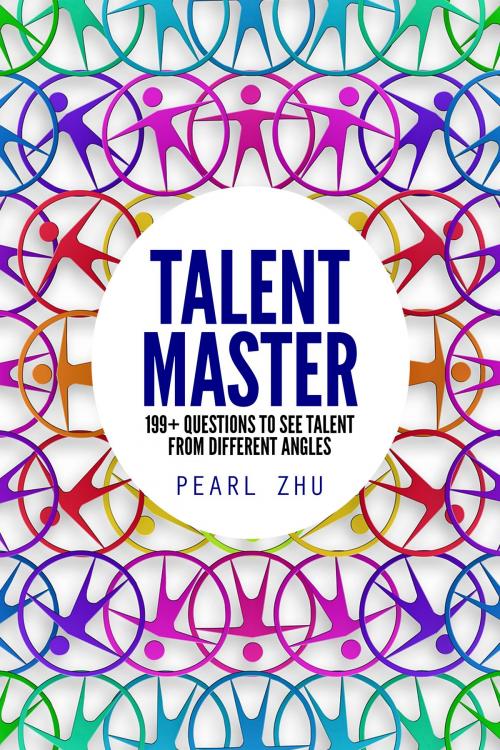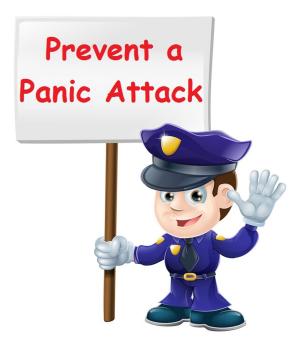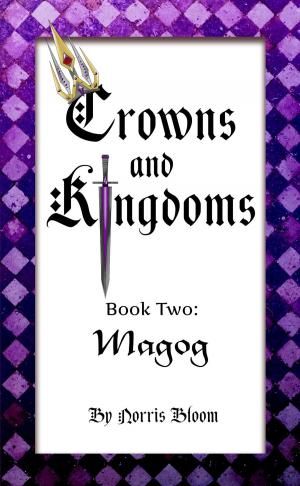Talent Master
199+ Questions to See Talent from Different Angles
Business & Finance, Management & Leadership, Leadership| Author: | Pearl Zhu | ISBN: | 9781483577739 |
| Publisher: | BookBaby | Publication: | August 13, 2016 |
| Imprint: | BookBaby | Language: | English |
| Author: | Pearl Zhu |
| ISBN: | 9781483577739 |
| Publisher: | BookBaby |
| Publication: | August 13, 2016 |
| Imprint: | BookBaby |
| Language: | English |
We live in a time of rapidly changing technology and business dynamic at the dawn of the Digital Era, The knowledge life cycle is significantly shortened, and a huge skill gap in the workforce needs to be filled due to the continuously updated technology and regulation, digitalization and globalization, etc. Growth minds, new skills, or digital capabilities are needed every day. However, who are the future of digital leaders and professionals at the age of Digital? How do you define digital professionals, identify talent gaps, and improve digital professionalism both at the individual level and organizational Level? Generally speaking, a professional is an individual with the expertise of some specific area, who earns his or her livings from that expertise. Being professional also means that the individual not only has the skill but also presents the high-quality professionalism such as positive mentality and attitude, fair judgments and good behaviors, creativity and high intelligence. The book “Talent Master - 199 + Questions to See Talent from Different Angles“ is the guidebook to help digital professionals shape digital fit mindset, improve multidimensional digital intelligence, build a unique set of digital capabilities, inspire creativity, improve professionalism, and unleash their full talent potential. It is also a playbook to help digital leaders and business managers set updated digital principles to innovate talent management, performance management, acknowledgment management and culture management, to integrate them into a holistic people management solution, and leap digital transformation to the next level of maturity. Chapter 1 Digital Fit: “Digital fit” should be first defined as “mind fit.” The right mindset is an utmost quality for being a right fit because the power of the mind is the force to change the business or even the world for better, and then following with attitude fit and behavior fit. Digital contemporary fitness requires envisioning new perspectives, shaping new boxes of thinking, and building new competency. Chapter 2 Digital Intelligence: Intelligence has been defined in many different ways such as in terms of one's capacity for logic, abstract thought, understanding, self-awareness, communication, learning, emotional knowledge, memory, planning, creativity and problem solving. Whether someone is "intelligent" or not depends entirely on what you are asking them to accomplish with their brain. Digital intelligence is multidimensional and contextual, with ultimate goals to gain wisdom. Chapter 3 Digital Creativity: Creativity is the high level of intelligence. Creativity is expressive, productive, inventive, innovative and emergent. The innovators with digital creativity are simply those who can see what's around, and easily and effortlessly discover a better way to do things. Creativity is a synthesis of two qualities: imagination with which you create new ideas and the concreteness with which you can transform ideas into real work. Chapter 4 Digital Professionalism: The online dictionary defines “professionalism is the skill, good judgment, and polite behavior that is expected from a person who is trained to do a job well.” Hence, it doesn’t mean if you had a profession, you would be automatically a well-respected professional with professionalism. High professionalism is a mindset, principle, and discipline. Chapter 5 Digital Potential: Potential is about future performance, not past performance. How well do individuals continue to perform and grow in their current roles, how likely can they take on new challenges at work, rapidly learn and grow into next-level roles, or roles that are expanded and redefined as the business changes? Individuals showing potential are distinguished usually by their mastery of new roles quickly and effectively, learning more rapidly than their peers, more innovate in problem-solving. Either at individual or business level, performance helps you motiva
We live in a time of rapidly changing technology and business dynamic at the dawn of the Digital Era, The knowledge life cycle is significantly shortened, and a huge skill gap in the workforce needs to be filled due to the continuously updated technology and regulation, digitalization and globalization, etc. Growth minds, new skills, or digital capabilities are needed every day. However, who are the future of digital leaders and professionals at the age of Digital? How do you define digital professionals, identify talent gaps, and improve digital professionalism both at the individual level and organizational Level? Generally speaking, a professional is an individual with the expertise of some specific area, who earns his or her livings from that expertise. Being professional also means that the individual not only has the skill but also presents the high-quality professionalism such as positive mentality and attitude, fair judgments and good behaviors, creativity and high intelligence. The book “Talent Master - 199 + Questions to See Talent from Different Angles“ is the guidebook to help digital professionals shape digital fit mindset, improve multidimensional digital intelligence, build a unique set of digital capabilities, inspire creativity, improve professionalism, and unleash their full talent potential. It is also a playbook to help digital leaders and business managers set updated digital principles to innovate talent management, performance management, acknowledgment management and culture management, to integrate them into a holistic people management solution, and leap digital transformation to the next level of maturity. Chapter 1 Digital Fit: “Digital fit” should be first defined as “mind fit.” The right mindset is an utmost quality for being a right fit because the power of the mind is the force to change the business or even the world for better, and then following with attitude fit and behavior fit. Digital contemporary fitness requires envisioning new perspectives, shaping new boxes of thinking, and building new competency. Chapter 2 Digital Intelligence: Intelligence has been defined in many different ways such as in terms of one's capacity for logic, abstract thought, understanding, self-awareness, communication, learning, emotional knowledge, memory, planning, creativity and problem solving. Whether someone is "intelligent" or not depends entirely on what you are asking them to accomplish with their brain. Digital intelligence is multidimensional and contextual, with ultimate goals to gain wisdom. Chapter 3 Digital Creativity: Creativity is the high level of intelligence. Creativity is expressive, productive, inventive, innovative and emergent. The innovators with digital creativity are simply those who can see what's around, and easily and effortlessly discover a better way to do things. Creativity is a synthesis of two qualities: imagination with which you create new ideas and the concreteness with which you can transform ideas into real work. Chapter 4 Digital Professionalism: The online dictionary defines “professionalism is the skill, good judgment, and polite behavior that is expected from a person who is trained to do a job well.” Hence, it doesn’t mean if you had a profession, you would be automatically a well-respected professional with professionalism. High professionalism is a mindset, principle, and discipline. Chapter 5 Digital Potential: Potential is about future performance, not past performance. How well do individuals continue to perform and grow in their current roles, how likely can they take on new challenges at work, rapidly learn and grow into next-level roles, or roles that are expanded and redefined as the business changes? Individuals showing potential are distinguished usually by their mastery of new roles quickly and effectively, learning more rapidly than their peers, more innovate in problem-solving. Either at individual or business level, performance helps you motiva















